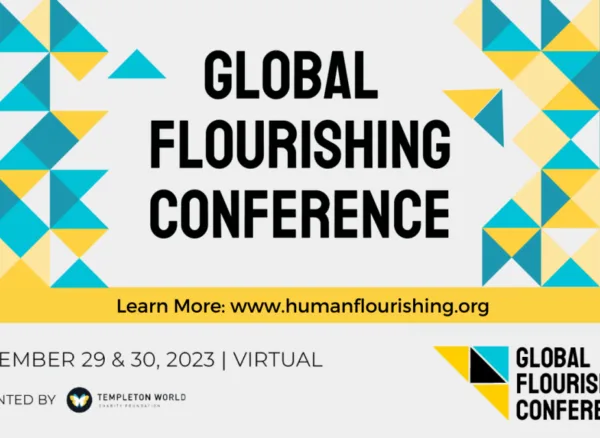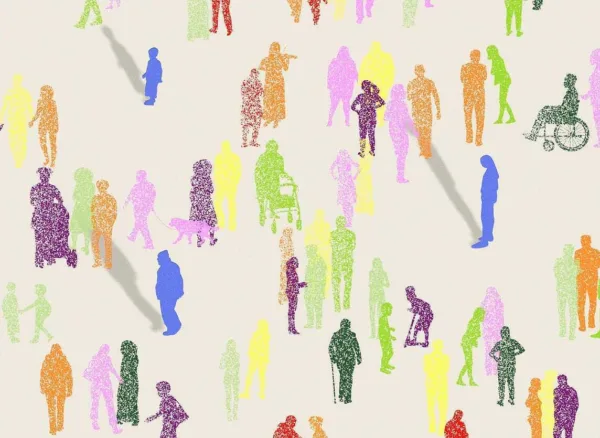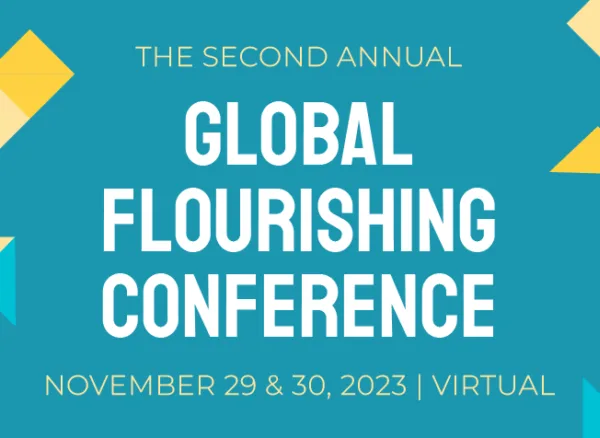Menu

"The Seekers" is a short documentary about the need to rebalance our connection with the natural world through a convergence of modern science and the wisdom of Indigenous cultures. Filmed by award-winning photographer Pete McBride, and funded by Templeton World Charity Foundation, this film follows physicist and author, Marcelo Gleiser and Navajo entrepreneur, Len Necefer, as they try in different but surprisingly complementary ways, to re-engage with nature and explore its healing potential. Watch "The Seekers" with the above player.
People tend to see science as a cold, data-driven enterprise without any humanity in it. Stories of passionate scientists and their motivations tend to get drowned out. Interviews are about the new discoveries and not the people behind them. Indeed, scientists themselves often see their own work as a pursuit unto itself. Yet science is much more than that; scientific research can be transformative as a practice, a portal to becoming a better human and to making humanity a better species than it has been. Scientific inquiry began as a rational and spiritual search for the secrets and meaning of our own existence. But this isn’t typically how scientific pursuits are now framed, and this counterproductive stereotype pushes people away from wanting to become scientists and empties science from its humanistic dimension.
Can this story be told differently?
A New Story for Science
So much of the public understanding of science is centered around new discoveries, the wow effect. By necessity, scientists need to focus on the technical aspects of research, rather than on a more humanistic concern about who we are and our place in the world. But that’s only part of the story, the one that gets grants and get papers published. Scientists also have the power and ability to shape this message; it’s possible for us to retell, reshape, and reframe it to be more embracing — helping us strengthen ourselves and how we live as human beings — as opposed to being a merely descriptive narrative of how the universe works.
A possible reframing of how we talk about science and incorporate it into our lives requires us to look beyond the western scientific tradition to seek out new (or in many cases very old) ways of understanding ourselves and how we relate to our world. At stake is nothing less than the future of our project of civilization. I began this pursuit when I developed and taught a course at Dartmouth in the mid-1990s on the intellectual history of science. This course eventually became The Dancing Universe, a book which sought to bridge the intellectual history of science with creation myths — narratives of the origin of everything — from Indigenous cultures and various world religions.
Apart from my traditional scientific research, I decided to understand why we are doing science beyond the obvious answer, to understand how Nature works or how to develop new gadgets and new chips. Science does need to be technical and specific, and research should lead to concrete discoveries and new technologies. Yet, it must also be more than that. A physicist should know how to solve an equation in quantum physics, but they must also learn about the cultural context and philosophical implications of what they are doing. Science only matters in the cultural and social context which it serves.
The Seekers
There is no denying that humanity has reached a turning point. The future of the project of civilization requires us to reframe science and our place in the universe. To sustain our unchecked growth, we are eating our planet from the inside out, paving it over and poisoning the atmosphere. Science can help us live sustainably and in balance with the world, but only if we allow it to shape how we see and understand ourselves in relation to it. To do this, I propose we must seek out a marriage between the ancient knowledge of Indigenous cultures and very modern, post-Copernican, post-Enlightenment ways of thinking about civilization. The future of humanity on Earth depends on the fundamental understanding that we are not above Nature but an intrinsic part of it, co-dependent with the life collective. Everything that we do, from our every single breath to the water we drink and the food we eat, is contingent on the environment where we exist. A sick planet cannot sustain healthy lives.
Some are already seeking out this new way of understanding and interacting with the world. I call them simply "The Seekers" and document some of what they are doing in a short documentary film, made with the support of Templeton World Charity Foundation. In an upcoming book, The Dawn of a Mindful Universe: A Manifesto for Humanity’s Future, I present my arguments for a post-Copernican mindset for humanity.
In "The Seekers," we construct a narrative that goes beyond the typical scientific perception, which is that the more science tells us about the universe and our place in it, the less important we become. In this conception, human beings are inconsequential within a huge expanse of space and trillions of stars and planets. Earth becomes unimportant in this scenario, and humanity even less so. Yet I believe this is absolutely the wrong way to think about our planet, a rare and precious gem in the vastness of the Cosmos. As the species that knows this, we have a moral imperative to change the way we relate to life, given that life is the richest, most spectacular manifestation of what matter can do. This is the essence of the new biocentric mindset that mirrors some of the thinking of the eco-theologian Thomas Berry.
"The Seekers" aims to turn conventional scientific ways of thinking upside down by embracing, parallel to cutting-edge research, ancient ways of knowing rooted in Indigenous cultures that treated Nature as a sacred realm. This isn’t as strange as it may seem to some. Indeed, under a post-Copernican lens, modern astrobiology tells us that Earth and the life it supports are really spectacular and rare for a huge number of reasons. Once we understand this, we must reframe our relation to the natural world and treat it with the respect it deserves, something that was always part of Indigenous ways of being.
Indeed, Indigenous cultures have long understood that we are not above Nature, that we are codependent with all forms of life and that this codependence is fragile. This understanding is inseparable from their deep spiritual connection to the land. This kind of sacredness is the potential bridge to a new sort of spirituality that incorporates the act of seeking scientific knowledge. In this way of thinking, human beings are the voice of the Universe. The Universe only has a story because we are here to tell it. This new story of who we are is a story of reconnecting with the land and with life as a path for self-awareness and self-knowledge. It is a story of reintegrating the rational with the sacred. This new, secular spirituality is not incompatible with science, but rather incorporates it. Human beings have been seeking knowledge and understanding about the Universe and our place in it for millennia. Re-embracing the life collective and celebrating our planet — the understanding that humanity, the world and the Universe operate as one — this is how humanity can find its global voice.
Marcelo Gleiser, 2019 Templeton Prize Laureate, is a theoretical physicist and public intellectual at Dartmouth College working on basic research ranging from cosmology and applications of information theory to complex phenomena to history and philosophy of science and how science and culture interact.
This article was edited by Benjamin Reeves, a New York-based writer, filmmaker and journalist. Learn more at BenjaminReeves.com or follow him on Twitter.




